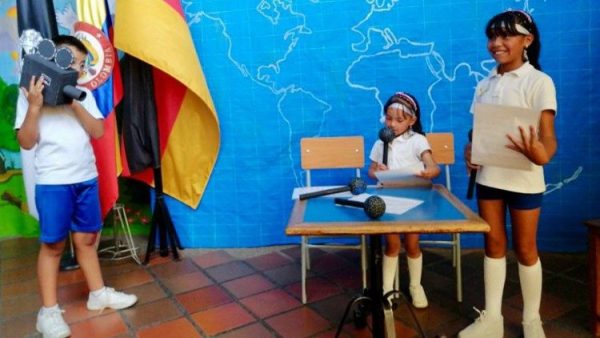Colombia: Dominican missionary sisters 'looking to the future with hope'
 Just over fifty years ago, three Dominican Missionary Sisters of the Sacred Heart of Jesus began a mission in an underprivileged area of Colombia. Today, these sisters are purusing another dream.
Just over fifty years ago, three Dominican Missionary Sisters of the Sacred Heart of Jesus began a mission in an underprivileged area of Colombia. Today, these sisters are purusing another dream.
Fifty years ago, we, three women religious of the Congregation of Dominican Missionary Sisters of the Sacred Heart of Jesus, responded to Pope Paul VI’s appeal to missionary religious congregations, calling for the evangelization of Latin America.
On 8 September 1973, we arrived in a marginalized neighbourhood with serious problems in infrastructure and social development, located south of Bogotá, Colombia.
We began our work among the communities in the area, along with the parish priest of the time, in an attempt to establish a “communitarian” work that would facilitate the dignification of life, the integral formation of the human person, and the development of Christian communities.
This is how FISDECO (Foundation for Social Integration and Community Development) was created—a social pastoral organization at the service of the Church.
Guided by the sisters, over the course of the years, it has managed to transform the lives of thousands of families in the area, making the experience of faith and the edification of the Kingdom among those most in need visible and possible.
Upon our arrival, we were faced with a reality that went well beyond the way we had pictured the new mission: families with many children in which the older children took care of the younger ones while the parents worked in rudimentary brick factories or in flower farming in the far northern part of the city.
The roads were unpaved and the houses were built with bricks, wooden poles and plastic, and had no water or electricity. The families cooked on propane stoves, often resulting in burns in children. There were not even any schools in the area. Despite the difficult conditions, we observed that the people who lived there had a profound desire to live their faith according to the traditions they had learned there.
Faced with this reality, the group of sisters and some laypeople decided to begin to make a change, starting with integral attention to children, young people, women, and the elderly, providing educational, spiritual, and health services, as well as material support for basic needs.
This joint commitment to creating a process of change, development, and dignification of life was the very essence of our missionary action from the very beginning—ensuring that the beneficiaries would become agents of their own development and, along with others, contribute to the transformation of their environment and of society.
Today, our main pillars are the nursery school and elementary school (currently 500 students), assistance to the community’s women and elderly people, and the libraries.
Currently, the sisters’ missionary work through FISDECO is exercised in the fields of education and community management, and is spread across six Integral Centres located in various neighbourhoods of the Ciudad Bolívar district, which has a population of around one million people.
We should mention that the country’s difficult political, economic and social situation is reflected in Ciudad Bolívar, where problems such as poverty, displacement, migration, unemployment, marginalization, drugs, and violence are a scourge for the local people.
Moreover, the high level of illiteracy and low level of primary and secondary school education have an effect on the people, preventing them from emerging from their vulnerable condition.
One of our current initiatives aimed at counteracting this situation is the implementation of a pilot literacy program called the “IntraAct” method. Created in Germany, it seeks to improve the learning process of reading by maximizing and facilitating academic performance.
Early childhood, childhood, and youth are our priorities. Throughout the years, we have noticed that even in difficult situations, education transforms the social context, and quality formation leads to significant changes in family units and their social contexts. Each year, some 100 students complete elementary school, leaving with a solid foundation for their intellectual, ethical, and religious growth.
Our big dream today—both of the students and of all the people involved with FISDECO—is to build a school for years 6 to 11, so that the boys and girls can continue their education and formation until the completion of their secondary education.
We are convinced that in this way they will be able to become agents of their own individual development and that of their families, making a sustainable impact on the common good of their community.
Secondary education is a project and a great investment that appears to be beyond our current possibilities.
But who would have thought 50 years ago that we would have been able to build all this? With God’s help, we continue to look to the future with hope and commitment to continue to turn dreams into reality!
Sr Regina Häufele
Source: vaticannews.va/en

